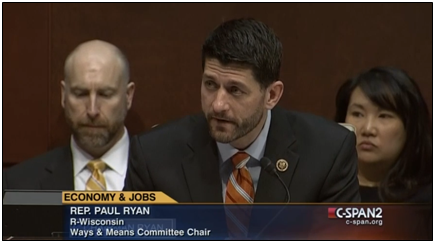“Trade promotion authority would empower Congress to set our negotiating objectives and hold the administration accountable.”
That was new House Ways and Means Committee Chairman Rep. Paul Ryan’s (R-Wis.) description of a process known as fast track — wherein Congress cedes its right to amend a trade deal, such as the Trans-Pacific Partnership.
Meaning whatever deal President Barack Obama comes up with would be subject to up-or-down votes and limited debate. If it was a bad deal or contained any bad provisions, Congress would be left with a “take it or leave it” choice. Hardly ideal from a legislature’s perspective.
As for negotiating objectives, trade deals like the Trans-Pacific Partnership have been in negotiation for several years. Any objectives set forth by Congress at this stage would be non-binding, and pretty much window dressing for members of Congress to say they were holding the Obama administration accountable.
Except they will be doing nothing of the sort.
In reality, by passing fast track trade authority, members were ceding much of their legislative powers to Obama — something even Senate Majority Leader Mitch McConnell (R-Ky.), a supporter of fast track, has conceded is “an enormous grant of power.”
Why would Congress do that?
According to Ryan, somehow, the agreements might reduce the trade deficit, which in 2014 was at $659.4 billion worldwide as of November, according to the U.S. Census Bureau.
“U.S. manufacturers have more than a $50 billion surplus with trade agreement countries. In contrast, the U.S. trade deficit in manufacturing goods with the rest of the world is more than $500 billion,” said Ryan.
What he leaves out is most of that is with China, where we have an overall $314.3 billion trade deficit. And China is not a party to the Trans-Pacific Partnership.
What Ryan also leaves out is that about $225 billion of the deficit was simply because of oil. In the U.S. we consume far more oil than we produce.
Overall, China and oil account for 82 percent of the entire trade deficit. And neither fast track nor the Trans-Pacific Partnership will do a thing about it. So why pretend?
Ryan also doesn’t mention the oil deficit also pulverizes any advantage the U.S. has with free trade agreement countries, of which there are 20 according to the U.S. Trade Representative: Australia, Bahrain, Canada, Chile, Colombia, Costa Rica, Dominican Republic, El Salvador, Guatemala, Honduras, Israel, Jordan, South Korea, Mexico, Morocco, Nicaragua, Oman, Panama, Peru, and Singapore.
Among them, thanks to oil, the U.S. was running a $50 billion total trade deficit as of November.
Ryan promises that fast track will help “expand markets for American exports.” Yet, among the Trans-Pacific Partnership countries, in 2014 as of November, the U.S. exported $669 billion worth of goods and services, accounting for 45 percent of U.S. exports worldwide last year.
So what’s the rush in enacting the trade deal? Ryan promises fast track will allow the U.S. to “get the best deal from our trading partners.” Yet if Congress loses its power to amend and improve it, how is that possible?
It seems the American people, and even members of Congress, are not getting the full story on what fast track will actually mean — which is that Congress gives its legislative powers to Obama and hopes for the best.
Robert Romano is the senior editor of Americans for Limited Government.







